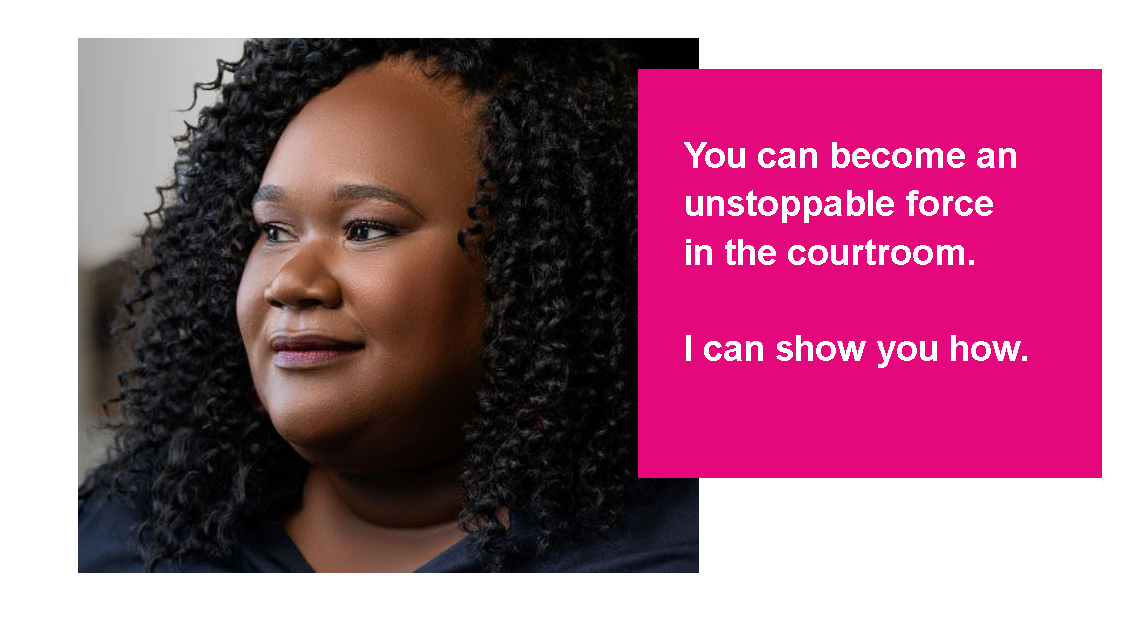


Why & When To Refer A Case Out
Law firms are often bombarded with clients seeking legal counsel to claim fair compensation for their losses. Personal injury cases are usually very emotional and even deeply traumatic for the sufferer, however, you may not always be able to help them out. Why & when to refer a case out.
No one will judge you for this, after all, you can have only so much on your plate at one time, and there’s no point in keeping the client waiting for you to take on their challenge. Learn to say no, not as in “no, we can’t do it,” but more like “our hands are all tied up at the moment, but we can refer you to someone who can help…”
Referrals are quite common in the legal realm and allow lawyers to strengthen their business bonds which other professionals or earn a minor passive income. Instead of flatly refusing to handle a case, you should refer the client to someone you know in this business.
This article will explore the ‘why’ and ‘when’ of referrals to help you make better decisions for your practice.
Referrals Affect Your Reputation

In the legal business, as with all other professionals, your reputation precedes you. Make a wrong turn with your practice, and things may go south before you know it. When a client reaches out to you, it’s for a reason.
Even if the client is mistaken somehow, let’s say you don’t handle personal injury cases but the person in front of you thought that you did, don’t embarrass the client simply for being mistaken. Be gentle and polite, tell them that you don’t handle this area, and refer them to an esteemed colleague or friend.
Never let your client walk out of your office without being completely satisfied, because, with the rise of the internet, information access has become easier than ever. This means that anything a disaffected client posts about your practice on Google My Business or Yelp, or even generally on social media, may come back to haunt you when you’re struggling with bringing in enough clients.
The way you deal with the clients who you can’t work for shows where you draw the line in your profession. You need to ensure that you come off as being nice and polite. Moreover, with your plate filled to the top, you’ll appreciate any source of passive income; referrals are a pretty nice way to do so.
Usually, the lawyer you’d refer to will give you a minor percentage from their winnings – all you have to do is to be nice and refer out a case.
Referring Out A Case: The ‘Why’ And ‘When’
Let’s explore the reasons and scenarios that may necessitate a referral:
The Case May Be Too Complex
Everyone loves a challenge, however, sometimes things may be a bit too difficult or complex. Cases that involve wrongful deaths, medical malpractice, or defective products are often very demanding, and you may want to keep your hands full with stuff that is easier to handle and just as rewarding.
That’s not to say you should avoid challenges altogether. However, sometimes, taking up a complex assignment is simply impractical. If you feel like a certain case is too much for you and you’d rather focus on a couple of cases you already have, it is always a good option to refer the case out to someone who can better handle it.
Of course, you won’t say it out loud like this. Just tell the client that you’re unavailable for the case and that you’d be happy to refer it to an esteemed colleague of yours.
If you feel challenged beyond your ability (let’s face it, you can’t win them all – no one can), it is better to let go rather than performing poorly and letting your reputation take a serious blow. Losing a case or not winning a decent settlement are out of question: thus referring a case out may be your only chance at a win-win deal.
You/Your Firm May Already Be Very Busy
The thing with self-employment in the legal business is that you may not have enough clients at a particular time of the year and maybe juggling with dozens of them at other times.
If a client has shown up with an intriguing case that you would’ve happily picked otherwise, but can’t at the moment because you’re simply too busy, don’t turn them away. Seat them down nice and comfy, and have a little discussion with them, make them feel assured and comforted about their case.
Then, let them know that you’re already too preoccupied to handle their case and that you’d be happy to refer the case out to other highly competent personal injury lawyers you know.
The Contingency Fee Arrangement May Not Be Your Cup Of Tea
Most lawyers either set up an hourly rate for their payment or demand flat fees to begin with. However, in the personal injury practice, contingency fee plans are almost universal. This means that the attorney will not demand upfront expenses but will rather earn a percentage of the client’s winning if they win.
Thus contingency fee agreements ensure that the client can afford a lawyer, to begin with, that the lawyer will only get paid if they win the case, and that the percentage and amount of earnings will be based on the efforts the attorneys vested for the sake of their personal injury clients. While this seems perfect from the perspective of personal injury victims who have complete liberty with their medical expenses, most lawyers are not all too eager to commit to such cases.
Not only does the payment depend heavily upon the efforts of the attorney but also, there’s no guarantee that the lawyer would win. If you’re intimidated by such cases, you can simply forward a referral to someone you know who works on a contingency fee basis.
Of course, you can gently probe into the matter and try to explore if the client can pay upfront or on an hourly basis, only when you’re certain that this is not the case should you give out a referral. This way, you’ll free up space to deal with cases that will certainly get you paid and let someone used to this system of payment take charge of the case.
You May Not Be Able To Bear The Case Expenses
Usually, the client has to pay for the case expenses, other than the legal fees, beforehand. However, in some contingency fee agreements, the client may simply express their inability to do so and demand that you settle those expenses in the final payment.
While this is fair, you don’t have any guarantee that you’ll win the case. If you don’t, you lose your winnings too. Thus, if you’re presented with such a case, odds are you might not be too comfortable taking it on, especially if you don’t deal with contingency fee plans.
If you feel like you won’t be left with much after deducting the case expenses and everything, better to refer the case to someone else who can do well with it rather than turning it down.
Case Location
Sometimes it is the location that matters more than anything else. You’ve reviewed the case thoroughly, everything seems perfect except for one teeny tiny detail: the case has been filed in an area where you either are not permitted to practice (due to location limitation) or are simply unaware of the local norms of the courts in that area.
It would be better to send in someone who better knows how to deal with the legal mess in the said area rather than trying unsuccessfully to deal with it yourself. Even if the location is not a technical problem, but only a matter of convenience (long drive), you may still refer the case to someone more eager for such opportunities and instead use the time to work on other cases.
You May Not Deal With A Certain Legal Area
There are no jacks of all trades in the legal business, at least, there shouldn’t be. Since the law is so specialized and demands nothing but the best in such an overly competitive environment, you cannot expect to win every case that comes to your desk.
We all know this much.
So let’s say that you deal with automobile accident cases and have minimal exposure to the medical malpractice area, even though both of these are covered by the canopy of personal injury law. You should naturally be hesitant to take on a medical malpractice case because you lack the experience and expertise to do much in that area.

Even if you can handle the case, it won’t be without dedicating excessive hard work and time to it. You can save your efforts and time for something that you’re really good at and instead work on the stuff that you feel more at home with.
This way, you let experts handle cases that they can win and you go on doing the stuff you do well, and you get some payment too – you’ve got nothing to lose!
Deciding Referral Fees: All You Need To Know
Okay, let’s talk money. We all know that being a lawyer is all about helping clients with their troubles but we also have to pay the bills and “feeling good” is not a currency. Case referrals can be free but they usually have a price tag.
Sometimes, the second lawyer may send over a small gift to the referring lawyer for their help – this does not fall under any legal regulation and you can accept the gesture without worries. However, referral fees are a completely different thing.
Not only must the client agree to pay a referral fee, in addition to paying their lawyer, but must also express their consent in writing. It is required by the Rules of Professional Conduct that personal injury lawyers (and others too) disclose the details of the payment to the client and only proceed with it if they agree with the terms.
The client may feel some friction if the fee is too high, so be sure not to rip off the guy, there are enough people already who associated greed with lawyers – don’t send another poor fellow to join this crowd. Just be considerate of the client’s financial position, perhaps, you may want to skip the fee altogether.
In this case, you helped a person without any expectations, I’m not sure if you do or do not believe in karma, but good things can happen to you too!
If the client does agree on a referral fee, have a copy of the written agreement with you just in case. Some lawyers and legal firms have, in the past, reneged on their promise to pay the referring lawyer – you can preempt such fraudulent behavior.
Just know when and why to refer a case out and how much to expect from it, and you’re all set!
Bottom Line
When a client reaches out to you, it’s for a reason. Don’t turn them back, you will regret doing so later on. Referring clients to other lawyers not only ensures that your professional reputation stands out – everyone loves people who behave nicely and treat others well.
Never take on a task without being certain that you will see it to fulfillment, and remember, referring someone to another lawyer is considered a positive gesture, not a negative one. If you’re worried that your reputation will be hurt this way, don’t be, clients always appreciate honesty and the fact that you’re thinking the best for them.
I, Sarah Williams, have made a mark in the Alabama legal realm because I have always put the needs of my clients before mine. In my career, I have taken referred out cases and sent referrals to others when something beyond my practice scope came before me.
Referring out clients has been very productive for me and I hope it will work out great for you too!
Over $30 million dollars
in verdicts and settlements recovered for my clients
in Total Settlements in 2020
in Referral Fees in 2020
Birmingham Business Journal Women to Watch
Alabama Super Lawyers Rising Stars
in verdicts and settlements recovered for my clients
in Total Settlements in 2020
in Referral Fees in 2020
Birmingham Business Journal Women to Watch
Alabama Super Lawyers Rising Stars

